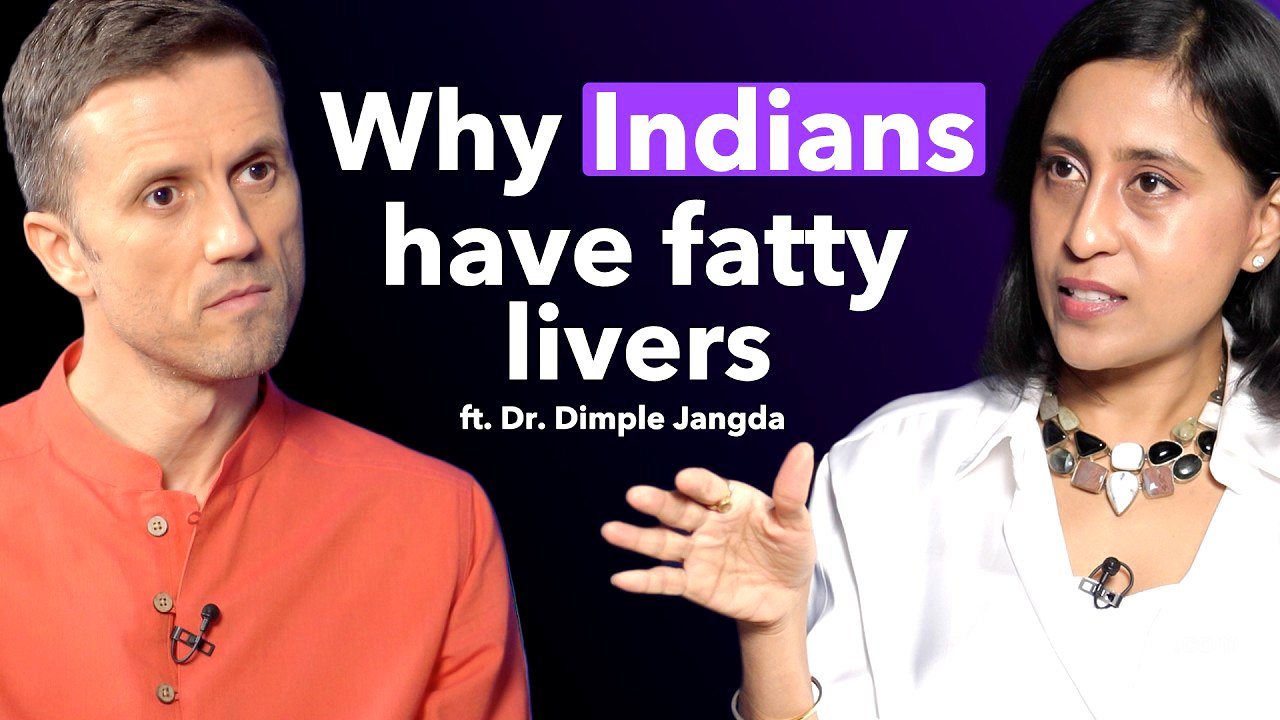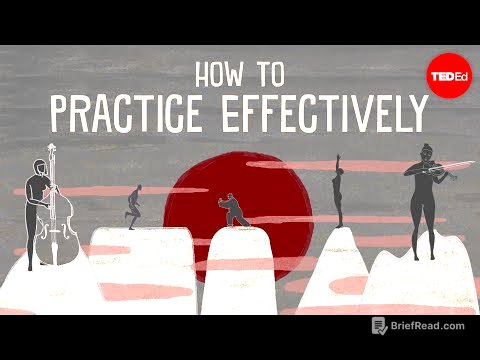TLDR;
This video features a discussion with Dimple, focusing on the root causes of chronic lifestyle diseases and strategies for improving gut health through diet and lifestyle adjustments. The conversation covers the impact of processed foods, animal-based products, and the importance of a whole food, plant-based diet. Dimple provides practical advice on fasting, food combining, and lifestyle changes to reverse diseases and promote overall well-being.
- Unhealthy diet is the root cause of most diseases.
- Processed foods and animal-based products are major triggers for diseases.
- Whole food, plant-based diet is essential for preserving health.
- Fasting and intermittent fasting can help reverse diseases.
- Gratitude and living in peace with nature are important for overall well-being.
Introduction: Common Health Issues and Ayurvedic Approach [1:34]
Dimple discusses the prevalence of chronic lifestyle diseases such as diabetes, thyroid issues, PCOS, infertility, skin disorders, and hypertension. She explains that in her clinic, they practice Ayurvedic nutrition, which is a preventive healthcare life science. They use yoga, breathing exercises, herbal medications, and Panchakarma treatment (full body detoxification) to remove toxins, boost immunity, and reverse diseases. The right diet, which involves removing trigger foods and incorporating nourishing foods, is crucial for healing the body.
Root Causes of Diseases: Unhealthy Colon and Poor Nutrition [4:00]
Dimple identifies unhealthy diet and nutrition as the primary root cause of most diseases. She cites research from Harvard, Stanford, and other universities indicating that 90% of diseases stem from an unhealthy colon and the body's inability to eliminate toxins. These toxins recirculate, affecting major organs. The surge of packaged and processed foods has destroyed our natural intuitive intelligence, which guides us on what to eat and avoid.
The Impact of Processed and Animal-Based Foods [5:58]
Processed and packaged foods are the number one trigger for diseases due to additives, emulsifiers, and industrial products. Animal-based products from factories, where animals are confined, tortured, and injected with hormones and antibiotics, also contribute to diseases. These animals release cortisol and diseases into their bodies, which are then consumed by humans. Harvard's lifestyle medicine course emphasizes that the only way to preserve health is through a whole food, plant-based diet.
Dead vs. Live Foods: Vibrational Frequency [11:57]
Dimple differentiates between dead and live foods. Dead foods, such as processed items and meat, lack nutrition and contain harmful chemicals. Live foods, like fresh fruits and vegetables, are full of Prana (life source) and convert sunlight and water into essential nutrients. Fruits have the highest vibrational frequency, promoting positive emotions like love and gratitude, while meat and dairy have the lowest frequencies, feeding negative emotions. Tesla's statement about understanding the universe through energy, frequency, and vibration is mentioned.
Negative Impacts on Gut Health [17:39]
Processed and packaged foods have long shelf lives due to preservatives, which the body struggles to break down. Refined foods lack fiber, making them difficult to digest. Meat and seafood take 2-3 days to digest, leading to rotting and gas release in the intestines. Dairy products from tortured animals injected with growth hormones and antibiotics contribute to antibiotic resistance. Antibiotics destroy gut bacteria, leading to food intolerances and metabolic waste buildup.
The Role of Antibiotics and Gut Microbiome [21:19]
Antibiotics, initially life-saving, are now detrimental to health as they destroy both good and bad gut bacteria. Stanford suggests that antibiotics should be used sparingly. The gut microbiome, likened to a rainforest, requires months to regenerate after antibiotic use, often with reduced diversity. This can lead to intolerances to foods like gluten and dairy.
Principles for Better Gut Health [28:33]
Dimple advises caution with fermented foods, as they can cause acidity and reflux, especially for certain body types. She recommends having fermented foods in moderation, such as fermented breakfast once a week. Yogurt can be consumed daily for lunch but should not be mixed with lentils. She also advises against eating fermented foods for dinner. Signs of inflammation, such as swelling and dark circles, can indicate gut issues.
The Importance of Fasting [35:27]
Fasting is crucial for gut health, starting with intermittent fasting that mimics the sunrise-sunset cycle. The first meal should be lunch, with a focus on boiled vegetables and well-cooked lentils. Dinner should be light and consumed three hours before bedtime. Fasting allows the body to repair and restore organs.
Types of Fasting and Their Benefits [44:59]
Dimple recommends starting with intermittent fasting, then progressing to one day a week of fruit fasting. Water fasting and dry fasting are also beneficial. Salt-free fasting can reduce water retention and inflammation. Fasting sharpens intuition and promotes the destruction of unhealthy cells through autophagy.
Success Stories of Health Transformation [53:16]
Dimple shares three success stories: a 13-year-old boy reversing thyroid issues, a senior citizen overcoming severe skin issues and depression through diet, and a young man reversing type 2 diabetes. These stories highlight the power of whole food, plant-based diets and lifestyle changes in reversing chronic diseases.
Five Basic Rules for IBS [1:00:17]
Dimple outlines five basic rules for managing IBS: 1) Don't heat honey, as it turns toxic. 2) Eat fruit alone or not at all, avoiding mixing with dairy or vegetables. 3) Cook vegetables instead of eating them raw. 4) Soak grains, pulses, legumes, lentils, nuts, and seeds to release defense mechanisms. 5) Adopt a 95% plant-based diet.
Smallest Change for Biggest Impact [1:07:39]
The smallest change with the biggest impact is intermittent fasting, adopting a whole food, plant-based diet, and expressing gratitude when eating. Living in peace with nature and respecting it are also essential for a long, healthy, and happy life.








